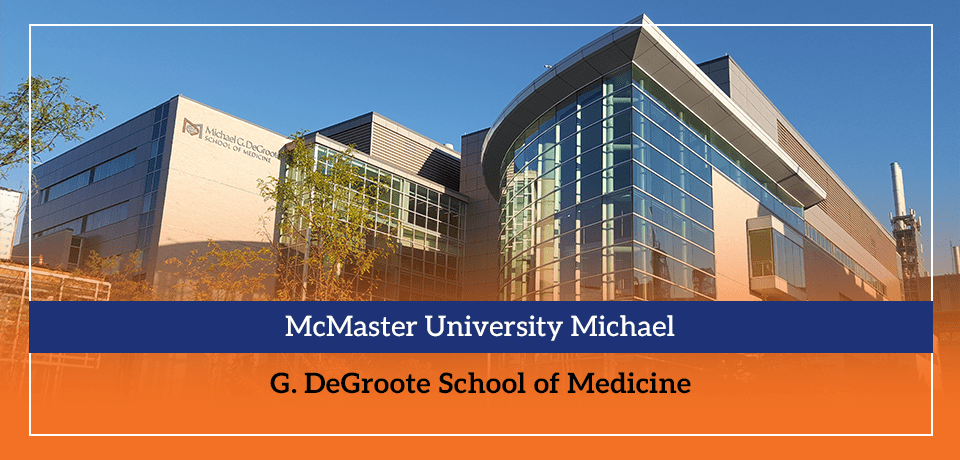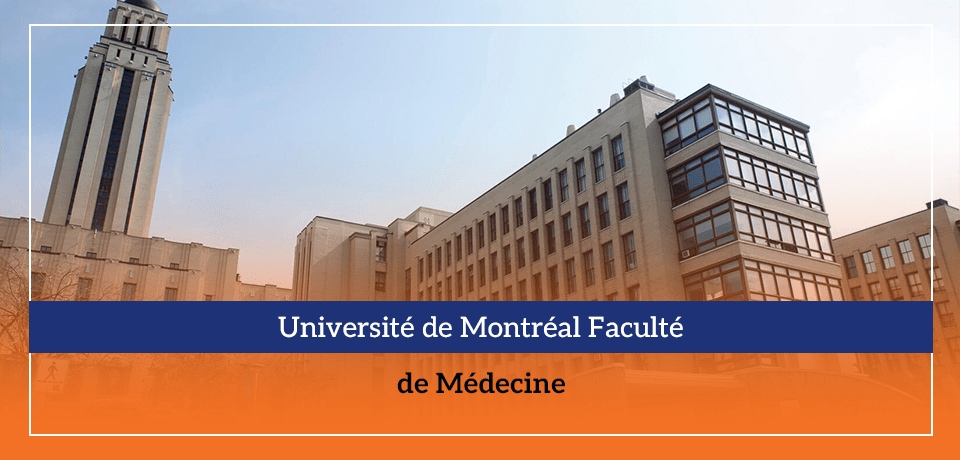Looking for a shortlist of top medical schools in Canada that reflect real admissions rules, not just big names? Canadian MD programs sit inside a defined system shaped by the AFMC admissions guide, CACMS accreditation, province-based seat preference, and selection tools such as the MCAT, CASPer, and the MMI. This guide keeps the focus on what students need to decide: eligibility, program fit, and a realistic plan for domestic and international applicants.
Medical school choices in Canada affect time, cost, and long-term training, including residency through CaRMS. This article explains how Canadian medical education works in 2026, how schools review applications, and how to compare options using practical criteria. If you are searching “how to apply to medical school in Canada as an international student,” you will see the key constraints early, plus a school-by-school overview you can use for planning.
Understanding Medical Education in Canada (2026)
Canadian medical education leads to the MD as a first professional degree. The AFMC’s current admissions guide lists 18 faculties of medicine in Canada that offer programs leading to the MD degree. The national structure is consistent, but entry pathways and selection details vary across provinces and schools.
In most provinces, MD programs are second-entry. Students usually complete two to four years of university study, often a full bachelor’s degree, before applying, so it helps to understand how gap years are viewed for Canadian study plans. Quebec can differ, since some pathways allow entry after CÉGEP, based on the school’s rules and the route the applicant follows.
Program length is usually three or four years. McMaster and Calgary are widely known for three-year formats, and many other schools run four-year programmes. After the MD, graduates move into residency training, which is required for medical practice in Canada.
Provincial eligibility shapes outcomes. Many seats are set aside for in-province applicants, and schools define residency categories in very specific ways across public university options in Canada. This single factor can turn a “dream list” into a realistic shortlist, especially for out-of-province and international applicants.
Accreditation Update for Canadian Medical Schools (Post-July 1, 2025)
Canadian MD programs are accredited by the Committee on Accreditation of Canadian Medical Schools (CACMS). CACMS status is a clear marker that a Canadian MD program meets national standards for undergraduate medical education.
The LCME stopped accrediting Canadian medical schools effective July 1, 2025. Older web pages may still reference LCME for Canadian schools, so the date matters. When reviewing information online, check the school’s official admissions site for current accreditation statements and program details.
Students comparing Canada and the United States often ask how accreditation connects to future options. Program status can shift over time, so applicants should treat accreditation notes as change-prone and confirm the latest information through primary sources and official school pages.
Overview of the Application Process and Prerequisites
Canadian medical school admissions are competitive and multi-step. Schools assess academic results, test performance, personal qualities, and mission fit. Selection components can look similar across Canada, yet the weighting and cutoffs can differ a lot.
Common evaluation pieces include GPA, the MCAT at many schools, CASPer at many schools, autobiographical sketches, reference letters, and interviews that often use the Multiple Mini Interview (MMI) format. Some schools do not require the MCAT, which is common in parts of Quebec and in certain bilingual pathways.
Prerequisites vary by institution. Some schools list required courses, and some focus more on overall academic strength. For international applicants, language documentation can also matter, and it’s worth checking Canadian universities that may waive IELTS in some cases. Many programs expect strong preparation in the sciences, yet the exact course list can differ from school to school.
Application routes can be centralised in some regions. In Ontario, applicants often hear about OMSAS, since it is tied to the provincial application flow for many schools. Each school still sets its own rules, deadlines, and pathway options, so students need school-specific planning even with a shared portal.
Admission details can change each cycle. Tuition, seat counts, international policies, and test rules can shift between entry years. A strong plan starts with official admissions pages and the AFMC annual guide for the correct entry year.
Criteria for Evaluating Medical Schools in Canada
Choosing a medical school is not only about reputation. A strong decision uses clear criteria that match student goals and training realities. This section gives a simple framework you can use before comparing individual schools.
Academic reputation and research environment
Research strength can affect lab access, mentorship, and exposure to innovation. Global health-science rankings can signal research intensity, yet they do not replace MD admissions realities. A school can be famous and still be a poor fit for an applicant’s residency category or pathway access.
Clinical training network and facilities
Clinical exposure depends on teaching hospitals, regional campuses, patient diversity, and clerkship structure. Distributed medical education can be a real advantage for students who want community exposure along with major hospital experience. Students who prefer large urban systems may prioritise a different style of training network.
Residency outcomes and career support
Medical school is one step in a longer route that includes residency training. Students should think about speciality goals, exposure across disciplines, and support for CaRMS preparation. Career advising often matters more than applicants expect once clerkship starts.
Student support and learning culture
Medical training is demanding. Support systems like wellness services, academic coaching, and accessible faculty can help students stay steady during heavy rotations. Learning culture can vary even when programs look similar on paper.
Cost and funding opportunities
Tuition varies by province category and residency status. Some programs show wide differences between in-province and out-of-province tuition. Funding options may include school bursaries, entrance awards, and research-related scholarships that applicants can explore in Canada.
This framework keeps comparisons grounded and practical. It supports a shortlist that matches eligibility, learning style, and long-term training plans.

Top Medical Schools in Canada (MD Programs to Consider in 2026)
1. University of Toronto (Temerty Faculty of Medicine)
The University of Toronto is the best medical school in Canada in our list. Its MD program is tied to a large academic health network in Toronto. Students often shortlist U of T for wide clinical exposure across major teaching hospitals and strong research pathways across medical and health sciences.
For 2026 planning, tuition depends on the applicant’s Ontario status and fee category. AFMC reporting shows first-year domestic tuition in the mid–CAD 20,000 range, split by Ontario and non-Ontario categories. AFMC reporting for the Fall 2026 entry cycle indicates no international admissions for that entry year.
Key information
- City/Province: Toronto, Ontario
- Degree: MD
- Training setting: Large urban teaching-hospital network
- Admissions tools to expect: GPA, MCAT (where required), CASPer/MMI style interviews (by school rules)
- Tuition (AFMC-reported, sample): CAD 23,909 (Ontario) / CAD 26,200 (non-Ontario)
- International seats: Not open for Fall 2026 entry per AFMC reporting
- Best fit for: Students seeking broad speciality exposure in a major metro setting
2. University of British Columbia (Faculty of Medicine)
The University of British Columbia is another of the best medical schools in Canada. UBC is widely known for distributed medical education across British Columbia, with multiple regional training sites. This structure can suit applicants who want experience across different communities, not just a single campus environment.
UBC planning often comes down to residency category and site structure, since placements can shape daily life and living costs. AFMC reporting lists first-year domestic tuition near CAD 20,000, with separate compulsory fees and textbook costs.
Key information
- City/Province: Vancouver (plus regional sites), British Columbia
- Degree: MD
- Training model: Distributed clinical education across BC sites
- Admissions tools to expect: GPA, MCAT (where required), CASPer/MMI (by school rules)
- Tuition (AFMC-reported, sample): CAD 19,995 + listed fees/textbooks
- Best fit for: Students open to regional training sites and community exposure
- Planning note: Check site assignment and housing early
3. McGill University (Faculty of Medicine and Health Sciences)
McGill’s MD-CM program has strong clinical teaching in Montreal and a long research legacy. Many students shortlist McGill for its global reputation and hospital-linked learning across a major city.
Tuition differs sharply by category. AFMC reporting shows Quebec residents pay far less than other Canadian categories. Visa and international categories can be much higher, with limited policy-based seat availability.
Key information
- City/Province: Montreal, Quebec
- Degree: MD-CM
- Learning environment: Major Montreal hospital network
- Language/culture: Montreal is bilingual in daily life
- Tuition (AFMC-reported, sample): CAD 6,231 (Quebec) / CAD 25,956 (other Canadian)
- International seats: Limited and policy-based
- Best fit for: Students who want Montreal-based training and strong research exposure

4. McMaster University (Michael G. DeGroote School of Medicine)
McMaster is known for a three-year MD format and a selection model that relies on structured assessment. Applicants often focus on file strength, interview readiness, and school-specific test expectations.
A three-year structure can feel fast-paced, so workload preference matters. AFMC reporting lists first-year tuition in the mid–CAD 20,000 range, with different figures by applicant category.
Key information
- City/Province: Hamilton, Ontario
- Degree: MD
- Program length: 3 years (accelerated format)
- Selection focus: Structured assessment and interview performance
- Tuition (AFMC-reported, sample): CAD 25,130 (in-province) / CAD 29,963.78 (Canadian residents)
- Best fit for: Students comfortable with a faster program pace
- Planning note: Build a strong CASPer/MMI plan early
5. University of Alberta (Faculty of Medicine and Dentistry)
The University of Alberta is a major medical training hub in Edmonton with broad clinical and research opportunities. It is recognised as one of the top medical universities in Canada. Many students shortlist it for strong hospital partnerships and exposure to a wide patient mix.
Admissions planning is closely tied to residency category rules. AFMC reporting includes examples of GPA and MCAT minimums by residency category for this program, and those values can shift between cycles.
Key information
- City/Province: Edmonton, Alberta
- Degree: MD
- Training setting: Major provincial clinical network
- Admissions tools to expect: GPA, MCAT (where required), CASPer/MMI (by school rules)
- Tuition: Check the official fee page for the entry year and category
- Best fit for: Students who want Alberta-based training and research access
- Planning note: Review residency category definitions early
6. University of Calgary (Cumming School of Medicine)
The University of Calgary is known for an accelerated MD format and strong clinical ties across Alberta. Applicants often shortlist Calgary for its focus on applicant qualities beyond grades, depending on the year’s admissions model.
Eligibility rules and residency categories can shape competitiveness. AFMC reporting includes examples of GPA and MCAT expectations by category, and applicants often pay close attention to CARS expectations when planning the MCAT.
Key information
- City/Province: Calgary, Alberta
- Degree: MD
- Program length: 3 years (accelerated format)
- Training setting: Alberta clinical network and teaching hospitals
- Tuition: Check the official fee page for the entry year and category
- Best fit for: Students who prefer an accelerated structure
- Planning note: Align test prep with category-based expectations
7. Western University (Schulich School of Medicine & Dentistry)
Western Schulich offers strong clinical training across Southwestern Ontario with a clear program structure. Students often shortlist Western for its teaching-hospital network and regional clinical placements.
AFMC reporting lists first-year domestic tuition figures in the mid–CAD 20,000 range for in-province, with higher figures for other Canadian categories. Rules and fees can shift by year, so students should use the entry-year fee page.
Key information
- City/Province: London, Ontario
- Degree: MD
- Training setting: Southwestern Ontario hospital network
- Admissions tools to expect: GPA, MCAT (where required), CASPer/MMI (by school rules)
- Tuition (AFMC-reported, sample): CAD 25,702.64 (in-province) / CAD 29,482.64 (Canadian residents)
- Best fit for: Students who want Ontario training outside downtown Toronto
- Planning note: Review regional placement expectations
8. Queen’s University (School of Medicine)
Queen’s is often associated with a close-knit feel and a strong teaching culture in Kingston. Many applicants shortlist Queen’s for a balanced learning environment tied to hospital-based training.
Pathway options and seat allocation rules can affect competitiveness. Applicants often benefit from early work on autobiographical content and interview preparation, based on that year’s selection model.
Key information
- City/Province: Kingston, Ontario
- Degree: MD
- Training setting: Kingston-based clinical teaching network
- Admissions tools to expect: GPA, MCAT (where required), CASPer/MMI (by school rules)
- Tuition: Check the official fee page for the entry year and category
- Best fit for: Students who prefer a smaller-city medical school setting
- Planning note: Prepare autobiographical content with clear evidence

9. Université de Montréal (Faculté de médecine)
Université de Montréal is a leading Francophone medical institution with strong clinical and research links in Quebec. For many students, language ability is the deciding factor, not only academics.
Tuition and eligibility can differ by Quebec residency category and the applicant’s background. Students should review the official language expectations and pathway rules for their entry year.
Key information
- City/Province: Montreal, Quebec
- Degree: MD
- Language: French-focused program environment
- Training setting: Montreal-based clinical network
- Tuition: Check the official fee page for the entry year and category
- Best fit for: Students confident in French academic and clinical settings
- Planning note: Confirm language requirements early
10. University of Ottawa (Faculty of Medicine)
The University of Ottawa is known for bilingual education options and a strong hospital network in the capital region. Applicants often shortlist Ottawa for language-stream choice and pathway structure that can match different applicant backgrounds.
Planning works best when students pick a stream early and build interview readiness around the entry-year selection model. Students should review entry-year test rules by stream and category on the official admissions page.
Key information
- City/Province: Ottawa, Ontario
- Degree: MD
- Language options: English/French streams (by program rules)
- Training setting: Capital-region teaching hospitals
- Tuition: Check the official fee page for the entry year and category
- Best fit for: Students who want Ottawa-based training or bilingual options
- Planning note: Choose the stream that matches your language strength
Quick Comparison Table (Top 10 Overviews)
|
Medical School (MD)
|
Province
|
Program style or standout feature
|
Sample first-year domestic tuition (AFMC-reported where available)
|
What to check on the official page
|
|
University of Toronto
|
ON
|
Large academic health network
|
CAD 23,909 (ON) / CAD 26,200 (non-ON)
|
Entry-year applicant category rules; international policy
|
|
UBC
|
BC
|
Distributed training sites
|
CAD 19,995 + listed fees/textbooks
|
Site placements, residency category definitions
|
|
McGill (MD-CM)
|
QC
|
Major Montreal hospital teaching
|
CAD 6,231 (QC) / CAD 25,956 (other Canadian)
|
Category-based tuition; language expectations in practice
|
|
McMaster
|
ON
|
3-year MD format
|
CAD 25,130 (in-province) / CAD 29,963.78 (Canadian residents)
|
File review model; test expectations for the cycle
|
|
University of Alberta
|
AB
|
Edmonton-based clinical hub
|
-
|
Category definitions; entry-year test rules and cutoffs
|
|
University of Calgary
|
AB
|
3-year MD format
|
-
|
Category-based expectations; interview structure for the cycle
|
|
Western (Schulich)
|
ON
|
Southwestern Ontario placements
|
CAD 25,702.64 (in-province) / CAD 29,482.64 (Canadian residents)
|
Regional placement model; entry-year fee schedule
|
|
Queen’s
|
ON
|
Close cohort feel
|
Not listed here
|
Pathways, seat allocation rules, and interview format
|
|
Université de Montréal
|
QC
|
Francophone training
|
Not listed here
|
French requirements; residency category tuition
|
|
University of Ottawa
|
ON
|
English/French streams
|
Not listed here
|
Stream-specific requirements; test rules by stream
|
International Students and Canadian Medical Schools
International applicants can apply to Canadian medical schools in limited circumstances, but policies can be strict and seats can be limited. Many schools prioritise Canadian citizens and permanent residents. If you’re planning to study in Canada as an international student, confirm which pathways actually apply to MD admissions. Some programs do not open international seats in certain cycles, even if they did in earlier years.
A realistic plan starts with two checks. First, confirm whether the school accepts international applicants for the intended entry year. Second, confirm how the school defines applicant categories, since “international,” “visa student,” and “non-resident” can mean different things across programs.
Many international students start in Canada through another route. A Canadian undergraduate degree can improve pathway access in some cases, and it can help with clinical volunteering and research experience. It’s also worth understanding post-study PR pathways in Canada early, since long-term plans can affect program choices. This route takes time, so applicants benefit from mapping a multi-year plan rather than relying on a single cycle.
Building a parallel plan is smart. Many students pair MD planning with related Canadian pathways such as public health, biomedical sciences, or research degrees, then reassess once eligibility and competitiveness are clearer. If you’re balancing training with long-term settlement plans, review course options in Canada that align with your PR goals.

Financial Considerations and Scholarships
Medical school cost planning should cover tuition, compulsory fees, books, equipment, and living expenses. Tuition varies by province category and residency status, and the range can be large even within one university.
Scholarship options exist, yet many students rely on a mix of loans, bursaries, and family support. Some awards focus on academic merit, and others focus on financial need. Research-linked funding is more common in graduate routes, including some MD/PhD pathways.
Students often miss one cost driver: relocation and site assignment. Distributed programs can place students in regional training settings. This can improve clinical exposure, yet it can raise housing and travel costs depending on the site and the student’s situation.
A practical budgeting habit is to confirm fee schedules early and review what counts as compulsory. Keep a buffer for rotation costs, exam fees, and interview travel.
Career Prospects After Graduation
The MD degree is followed by residency training, which shapes specialisation and long-term practice. In Canada, residency match planning is closely tied to CaRMS timelines and speciality choice. Students who think about residency early often feel less pressure later.
Demand varies by region and speciality. Family medicine and general practice roles remain important across provinces, and many communities need stable primary care coverage. Speciality pathways can be competitive and may require careful planning for electives, letters, and research exposure.
Income varies by speciality, province, and payment model. Many students look up average earnings early, yet lifestyle, call schedules, practice setting, and location often matter more for satisfaction. Use salary data as one input, not the only input.
Graduates can pursue certification through bodies such as the College of Family Physicians of Canada and the Royal College of Physicians and Surgeons of Canada, based on speciality route and training requirements.
Student Life and Support Services
Medical school workload is heavy, and support systems influence day-to-day success. Most universities offer counselling services, academic coaching, learning skills support, and wellness programming. International students should also review their health insurance coverage in Canada. Check what is offered at the faculty level, not only at the general university level.
Academic support can include tutoring, study groups, and structured help with exam preparation. Clinical years bring new pressures, since clerkship schedules can be unpredictable. Many students benefit from early routines that protect sleep, nutrition, and downtime.
Community plays a big role. Clubs, interest groups, and peer mentorship can reduce stress and improve learning. Students who build a support circle early often feel more stable during demanding rotations.
Housing and commuting shape quality of life. Large-city programs can mean high rent, and regional training sites can mean limited housing supply. Factor these realities into school comparisons.

Frequently Asked Questions
What is the easiest medical school to get into in Canada?
No Canadian medical school is truly easy to enter. Competitiveness is shaped by residency category and how seats are set aside for in-province applicants. A school can be realistic for an eligible in-province applicant and still be extremely competitive for an out-of-province applicant.
How many years does it take to become a doctor in Canada?
Many students complete two to four years of university study before medical school. MD programs last three or four years. Residency training adds two to seven or more years, based on speciality choice.
Can international students apply to Canadian medical schools?
Some schools accept international applicants in limited ways, and some cycles have few or no international seats in certain programs. International applicants should confirm the entry-year policy on the official admissions page and cross-check it against the AFMC guide for that cycle.
Do Canadian medical schools require the MCAT?
Many Canadian medical schools use the MCAT, and some focus closely on the CARS section. Some schools do not require the MCAT, which is more common in parts of Quebec and in certain bilingual pathways. Confirm the rule for your stream and category.
Do Canadian medical schools have LCME accreditation?
Canadian MD programs are accredited by CACMS. LCME accreditation in Canada ended effective July 1, 2025. Students reading older pages online should look for the current CACMS status and the current admissions cycle rules.
Conclusion
AFMC admissions guidance, CACMS accreditation status, residency category rules, and selection tools such as the MCAT, CASPer, the MMI, and CaRMS shape the real decision map for Canadian MD planning. Students who start with eligibility and category rules save time and avoid false shortlists built from reputation alone.
A strong plan uses official admissions pages for each school, checks category definitions early, and matches school culture to learning style and long-term training goals. If you are building a shortlist for 2026 entry, treat tuition figures and international seat availability as change-prone details and confirm them for your cycle.
Use this guide as your base and refine your shortlist around the top medical schools in Canada.